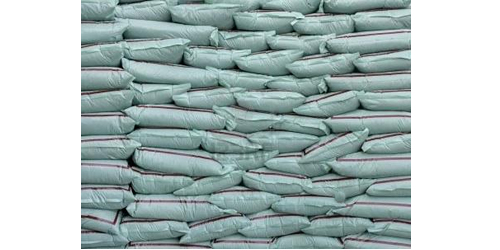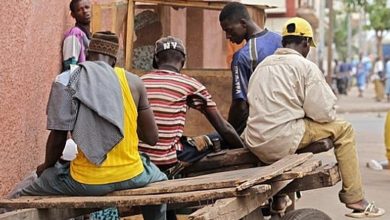Distribution, pricing to decide fate of fertiliser subsidy

Some civil society organisations have urged the government to stick to its promise to ensure that the Fertiliser Subsidy Programme (FSP) benefits the targeted farmers now that it has allocated money for its implementation this year.
They have advised the government to take a critical look at issues of distribution and pricing.
The government recently announced a GH?90 million subsidy on fertiliser and seeds for this year, two years after suspending the support. The FSP was initiated by the government in 2008 to help farmers increase fertiliser application to boost yield.
The government was not able to implement the Fertiliser Subsidy Programme (FSP) for the 2014 cropping season due to its inability to pay fertiliser companies a total of GH¢64 million it owed them.
The Minister of Food and Agriculture, Mr Fifi Kwetey, at a meeting to announce the subsidy in Accra, said crop farmers would be given priority this year. Also in line with the government’s policy of reviving the cotton industry, cotton farmers operating under recognised nucleus groups in the north would also benefit from the subsidy.
However, the Programme Officer of the Peasant Farmers Association of Ghana (PFAG), Mr Charles Nyaaba, told the GRAPHIC BUSINESS in Accra that the policy to give priority to nucleus farmers would pose a challenge to farmers who did not belong to any outgrowers (nucleus) farmer groups but were in the majority.
“We encourage the farmers to work in groups but how can we even trust that they are going to release all they are taking to the farmers. We are saying this based on the experience we had in 2012 when it was based on a quota system for regions and districts. You go to some districts and they say their quota was finished, meanwhile, there were other groups and companies who had certain quantities of subsidised fertiliser and it meant they had to join them to benefit,” he recounted.
Mr Nyaaba said it was also important to find a way to ensure that the price of the fertiliser was uniform for all farmers to ensure that districts which were far from the capital or the importing company did not end up paying higher.
The PFAG has also asked for strict enforcement of the law against smuggling and punishment for persons caught trying to smuggle fertiliser outside the country.
“Smuggling has always been a problem. The ECOWAS Protocol on Free Movement of Goods and Services needs to be looked at because we cannot subsidise for our neighbouring countries and also unapproved borders should be checked,’ he said.
The government has announced it would subsidise 180,000 metric tonnes of granular fertiliser at the cost of GH¢80.4 million for the 2015 farming season.
Mr Kwetey said the government would also subsidise 4,000 metric tonnes of certified seeds at the cost of GH¢3 million.
The approved selling prices for fertiliser for the 2015 farming season are as follows; price of all types of compound fertiliser per 50 kilogramme (kg) bag is GH¢89 and the price of urea is GH¢84 for the 50kg bag.
The minister explained that with the new prices the government was subsidising fertilisers at an average of 20 per cent.
Smallholder farmers, who cultivate maize, rice, sorghum and millet and out grower farmers registered under recognised nucleus farmers would be considered under the FSP and priority given to women farmers as much as possible.
Source: graphiconline



